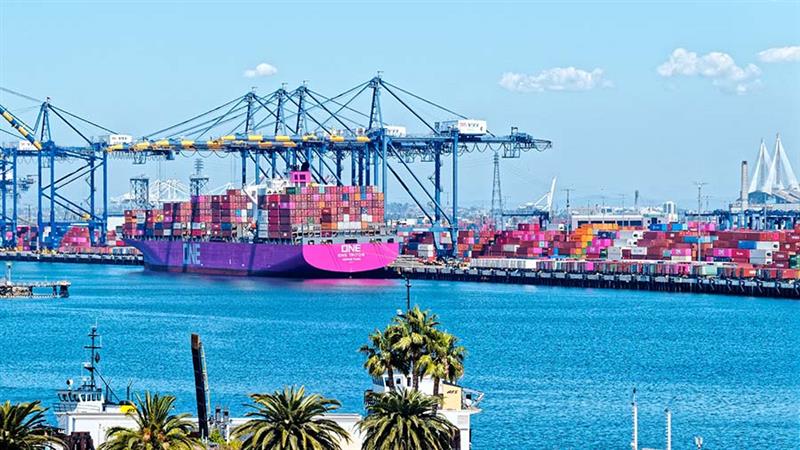Navigating the complexities of offshore banking in China as a foreigner presents a unique set of challenges. Whether for business transactions, sourcing products, or integrating into China's booming economy, understanding the nuances of opening a bank account in China is essential for foreigners seeking to establish a solid financial foothold in this rapidly evolving market.
This article offers a comprehensive guide detailing the necessary steps, documents, and insights into various account types to simplify this journey.
Regulatory framework and compliance
Navigating China's tightly regulated banking landscape requires a keen understanding of several key regulatory and compliance frameworks. This ensures that the financial system remains both stable and reputable. Here are some elements to bear in mind:
Anti-Money Laundering (AML) Protocols
China has established strict AML measures to deter money laundering and prevent funding for illicit activities. Banks rigorously check customer identities and are vigilant in reporting any activities that raise red flags.
Know Your Customer (KYC) Criteria
Under strict KYC protocols, Chinese banks require thorough verification of a customer's identity, source of funds, background of the legal representative and ultimate beneficial owner, residential proof, and other pertinent details. Preparing relevant documentation to meet these KYC demands during the account setup is required.
Foreign exchange regulations
With strict controls over foreign currency movements, China closely monitors cross-border fund flows. Understanding the rules around currency exchanges, international transfers, and the obligations of foreign account holders regarding declaration is imperative.
Cybersecurity and Data Privacy Emphasis
China strongly emphasizes protecting the digital aspects of banking. Banks employ comprehensive measures to safeguard customer data and transactional details. These elements underscore the importance of being well-versed in the regulatory landscape when engaging in banking activities in China.
Non-resident company and Offshore Banking in China
According to the State Administration of Foreign Exchange (SAFE), the term' non-resident' company typically refers to 'Overseas Organizations', encompassing legal entities officially established and registered outside mainland China, including locations like Hong Kong, Macao, and Taiwan. Therefore, if your business is not registered within mainland China, it falls under the non-resident category.
It's important to note that certain bank accounts in China are specifically designed for businesses registered in the country, such as Wholly Foreign-Owned Enterprises (WFOEs), Representative Offices, and Joint Ventures. Therefore, the account types we will discuss primarily fall into the category of foreign exchange accounts that cater to the needs of non-resident businesses.
Types of Foreign Exchange Accounts available in China
The following list outlines four types of accounts that non-resident foreigners are eligible to open in China, alongside their respective benefits:
The Offshore Savings Account (OSA)
The Offshore Savings Account (OSA) in China represents a significant stride in international banking, particularly appealing to overseas institutions and individuals. Initially introduced in 1989, this type of account marked China's foray into offshore finance, demonstrating its commitment to economic reform and global integration.
Only a select quartet of banks - Bank of Communications, China Merchant's Bank, Ping An Bank, and Shanghai Pudong Development Bank - are authorized to offer these accounts. This exclusivity underscores the rigorous regulatory environment surrounding OSAs, ensuring a robust framework for their operation. These banks operate independent departments solely dedicated to managing OSAs, further emphasizing the distinct nature of these accounts from conventional domestic banking services.
OSA Account's main features
- Strict separation management: OSA accounts operate under a strict separation management system, ensuring that funds sourced from overseas are solely utilized for international business activities.
- Foreign currency operations: These accounts exclusively conduct transactions in foreign currencies, with RMB transactions being explicitly prohibited.
- Versatile business transactions: OSAs are adept at handling a variety of business dealings, including but not limited to deposits, loans, settlements, and financing.
- Independent Interest Rate Pricing: Interest rates for OSA accounts are independently determined, following marketization principles, which allows for competitive and market-responsive rate setting.
- Exemption from certain Financial Levies: Notably, OSAs are not subject to deposit reserve requirements and interest income tax, presenting a distinct financial advantage for account holders.
Major advantages
- Robust privacy measures: OSA accounts offer exceptional confidentiality. The shareholders' identities, the specifics of their shareholdings, and complex business operations and capital details are kept under wraps and inaccessible to public scrutiny.
- Unparalleled operational autonomy: These accounts allow for a company's registration in offshore jurisdictions, providing the flexibility to conduct business operations globally without geographical constraints.
- Seamless international fund transfers: OSA accounts enable customers to easily transfer funds internationally, free from the restrictions of domestic exchange controls.
Eligibility and documentation requirements
- Individual account opening requirements:
- Chinese nationality Citizens: They must furnish identification documents and provide their overseas permanent residence permit (ID card with words “permanent” )and Chinese passport, proof of residence, and employment or student status evidence.
- Foreign Residents in China: They are required to present their passport, valid visa, residence proof, and documents confirming employment or student status.
- Business account opening requirements:
- Foreign-Owned Enterprises: Must provide comprehensive business registration documents, including incorporation certificates, company by-laws, approval letters, etc. and other necessary documents, including statutory financial reports, ID certificates of directors, authorized signatories, etc.
- General documentation for Bank Account opening in China:
- Completion of the application form with personal details.
- A valid passport.
- Proof of residential address.
- A Chinese contact number.
- Valid work permit or business license, if applicable.
- Foreign nationals may need to include an employment letter or employer’s note for KYC (Know Your Customer) compliance.
Non-Resident Accounts (NRA)
The introduction of Non-Resident Accounts (NRA) in 2009 by the China State Administration of Foreign Exchange (SAFE) marked a pivotal shift. This initiative allowed both domestic and foreign banks within China to open foreign currency accounts for foreign entities, thereby enhancing the financial management capabilities of both foreign and Chinese investors.
Key features
- Broadened Accessibility: Unlike OSA accounts, which are limited to four designated banks, NRAs can be opened with any bank in China, offering greater accessibility and choice for foreign investors.
- Impact on Banks' Foreign Debt Balance: Funds in NRA accounts contribute to the short-term foreign debt balance of the banks, unlike OSA funds. This aspect gives OSA banks flexibility in opening foreign exchange accounts without the constraint of foreign debt balance limitations.
- Exclusivity for Enterprises: While foreign individuals can open OSA accounts, NRA accounts are exclusively available to overseas corporations, not individual investors.
- Regulatory Compliance and Currency Conversion: NRAs face tighter legal oversight as banks managing these accounts adhere to total foreign exchange quotas. Additionally, the foreign currency in NRA accounts is not fully convertible into RMB, underlining a cautious approach towards currency exchange.
- Transactional Nature: Funds in NRA accounts are typically utilized for trade settlements, services, and capital investments, subject to approval by Chinese authorities. Transfers to and from NRA accounts are treated as cross-border transactions, necessitating thorough documentation and proof of authenticity for each transaction.
The administrative and operational aspects
- Documentary Requirements for Account Opening: Opening an NRA requires a comprehensive set of documents, including a special institution code applied through bank, business registration documents, identification proofs, legal representative appointment letters, and relevant agreements or contracts.
- Cross-Border Transactional Framework: The exchange of funds between NRA and domestic accounts is considered cross-border, requiring specific permits and proof of transaction authenticity. Additionally, banks are mandated to report these transactions in the international balance of payments, ensuring compliance with regulatory standards.
- Operational Challenges: Managing NRA accounts can be administratively demanding, especially without e-banking facilities. This necessitates dedicated on-ground staff for effective account management.
Hong Kong Bank Accounts (HKBAs)
Hong Kong Bank Accounts (HKBAs) have long been a foundation for facilitating seamless business transactions between Hong Kong and Mainland China. Their appeal stems from the straightforward process that allows companies to quickly transfer funds abroad, a feature especially appreciated due to the stricter currency exchange regulations in Mainland China. Moreover, HKBAs are renowned for their advanced Internet banking networks, offering a blend of convenience and efficiency in digital banking.
Navigating changing regulations
Governed by the Hong Kong Monetary Authority (HKMA), these accounts now adhere to stringent guidelines, aligning with global financial standards set by the OECD for Tax-cooperation and the FATF blacklist. This rigorous regulatory framework is primarily aimed at curtailing money laundering activities and reducing tax evasion on a global scale.
Despite these tightened measures, Hong Kong's transient nature and its history of dealing with non-resident account holders render it relatively accommodating for individuals seeking to open basic accounts. Notably, the process is streamlined for EU, USA, and Australian passport holders.
Account types and opening procedures
Hong Kong extends the facility of both personal and corporate bank accounts to locals as well as non-residents. Each category necessitates distinct documentation for the setup, ensuring compliance and security in banking operations.
The banking system in Hong Kong is characterized by a three-tier structure authorized by the HKMA. This includes Licensed Banks, Restricted License Banks, and Deposit-taking Companies, each playing a unique role in the financial ecosystem.
In terms of account opening procedures, there is considerable flexibility. Prospective account holders can opt for the traditional 'branch application' route or leverage the 'virtual bank' option, enabling an entirely online application process. This digital avenue caters to the modern banking needs of individuals and businesses, aligning with Hong Kong's reputation for technological advancement in financial services.
The Free Trade Non-Resident (FTN)
The Free Trade Non-Resident (FTN) account, specifically designed for overseas companies, is a key financial instrument available in the Hainan and Shanghai free trade zones. Introduced in May 2014 by the People's Bank of China, the FTN account forms part of a quintet of account types in the Shanghai Free-Trade Zone, each tailored to distinct entities such as FTZ-based enterprises, non-resident enterprises, FTZ-employed individuals (both local and foreign), and financial institutions within the FTZ.
The establishment of the FTN and its counterparts underscores the Shanghai Free Trade Zone's role in economic policy experimentation and is a significant contributor to RMB internationalization. Aimed at reducing bureaucratic hurdles, the FTZ offers an environment conducive to foreign investment, featuring simplified cross-border transaction procedures, enhanced RMB convertibility, and attractive interest rates.
For account holders, this translates into convenient investment avenues and efficient currency exchange tools, making the FTN a sought-after option for global enterprises looking to navigate the Chinese market.
Key features
The Free Trade Zone (FTZ) account, known as an FTN, offers a unique set of features designed to facilitate domestic and international business transactions:
- To open an FTN, one must approach financial institutions located within the FTZ.
- This account type allows for transactions in both Renminbi (RMB) and foreign currencies, providing a high degree of flexibility.
- One of the key advantages of the FTN is the ability to freely transfer funds between other FT accounts, offshore accounts, and onshore non-resident accounts, enhancing its appeal for cross-border financial activities.
- Transactions between FTN accounts and onshore accounts are considered cross-border transactions.
- Since 2017, a notable development has been the ability to convert funds in an FTN account into RMB without needing prior approval from the State Administration of Foreign Exchange (SAFE).
Documentation required
When it comes to the documentation required for opening an FTN account, several key documents are necessary. These include;
- Individual account opening requirements:
- Foreign individuals: foreign identity documents, certificate of working in the pilot zone for more than one year, Chinese working permit
- Chinese citizens: certificate of working in the pilot zone for more than one year
- Business account opening requirements:
- Foreign legal entities:
- Business registration documents, which must be translated and notarized in Chinese;
- The articles of incorporation;
- Copies of identification documents like the ID card or passport of the legal representative, the Chief Financial Officer;
- Copies of identification documents like the ID card or passport of the agent (if applicable) opening the account;
- The internal governance structure documents, including shareholders' information and an organizational chart;
- A certificate of good standing is required for companies that have been in operation for over a year to complete the application process.
- Domestic legal entities:
- Organization registration certificate;
- Organization code certificate and tax registration certificate (if any);
- Organization credit code certificate;
- Valid ID of the legal representative or person in charge of the unit;
- Power of attorney and valid ID of the agent;
- Other supporting documents required by regulations.
Choosing the right Chinese bank for offshore accounts
Given the multitude of banking institutions active in China, it's crucial to conduct comprehensive research before settling on a choice. When choosing a bank and its specific branch, it's advisable to prioritize factors such as ease of access and the availability of language assistance services.
Key Considerations
Please consider the following factors to choose an offshore accounts provider bank:
- Physical branch locations in your city and neighborhood;
- English-speaking staff availability;
- Digital capabilities for mobile and Internet banking; and,
- account fees, interest rates, and foreign exchange commissions.
The largest Chinese state-owned banks, such as ICBC, Bank of China, and Construction Bank, have the most extensive branch networks throughout China. Smaller regional banks may be able to provide more English services and flexibility.
Chinese Banks recommendation
Here are a few significant Chinese banks to consider when creating an account:
- Industrial and Commercial Bank of China (ICBC)
- Bank of China (BOC)
- China Construction Bank (CCB)
- Agricultural Bank of China (ABC)
- Bank of Communications (BoCom)
- China Merchants Bank (CMB)
- China Citic Bank (Citic)
How to open an Offshore Bank Account
Here is a concise summary of the essential steps and tips to guide you through the process:
- Understanding account types: Begin by acquainting yourself with the various types of bank accounts available in China. This knowledge will help you decide on the account that best suits your needs.
- Document preparation: Assemble all necessary documentation required for the application. This typically includes your passport, valid Chinese visa, proof of residence permit, and additional identification as needed. Organizing these documents beforehand showcases your diligence and readiness for the process.
- Application fee awareness: Be prepared to pay an application fee. While this is a standard part of the process, it's important to be aware of any financial commitments upfront.
- Bank familiarization: Recent advancements in China's banking sector have simplified account-opening procedures for foreigners. Take time to familiarize yourself with the banks in China, focusing on those with a track record of serving international clients. Here's how you can proceed:
- Choosing the right bank and branch: Conduct thorough research on the various banks and select a conveniently located branch. Prioritize branches with English-speaking staff and a history of accommodating foreign clients. Scheduling an appointment in advance can streamline your visit.
- Completing application forms: Carefully fill out the necessary application forms at your appointment, ensuring accuracy in all details. Bank staff are usually on hand to assist with any language barriers or queries you might have.
- Submission of documents and initial deposit: Present your prepared documents alongside the completed forms. You will also be asked to make an initial deposit, generally between 100 to 200 RMB.
- Account activation: Following the approval of your application, your new bank account in China should be operational within one to two weeks. You will receive your banking cards and can commence your banking activities.
Challenges and solutions in Offshore Banking in China
Regulations updates
Since changes in bank policies are frequently affected by comprehensive national policies, therefore, specific application requirements and/or restrictions on certain accounts need to be consulted with banks case by case.
Navigating language and documentation barriers
In the domain of offshore banking within China, foreigners frequently encounter significant hurdles, particularly in terms of language and documentation. The complexity of banking procedures, compounded by the language barrier, presents a formidable challenge. To overcome this, enlisting bilingual professionals is a mindful strategy.
These experts assist in translation and offer invaluable guidance through the intricate banking process. Additionally, many banks in China's major cities have adapted to this challenge by offering English-language support and simplifying the account opening process for foreigners.
Regarding the stringent documentation requirements in China, foreigners often find themselves at a loss. The challenge lies not only in compiling the necessary documents but also in comprehending their specifics. To tackle this issue effectively, thorough research and understanding of the required documentation are imperative.
Furthermore, consulting with local experts or international banks well-versed in the Chinese banking system can be instrumental. These entities can provide essential insights and ensure that all documentation meets the stipulated requirements.
Addressing foreign exchange limitations
Another significant obstacle to offshore banking in China is the country's strict foreign exchange regulations. These encompass limitations on currency conversions and international money transfers, posing a challenge, particularly for those engaged in substantial international transactions. It is advisable to collaborate with international banks to navigate these restrictions. Such banks typically offer more flexibility in managing foreign currencies and can guide you in adhering to foreign exchange regulations. Moreover, they can suggest efficient solutions for international transfers, simplifying the process for businesses and individuals alike.
































